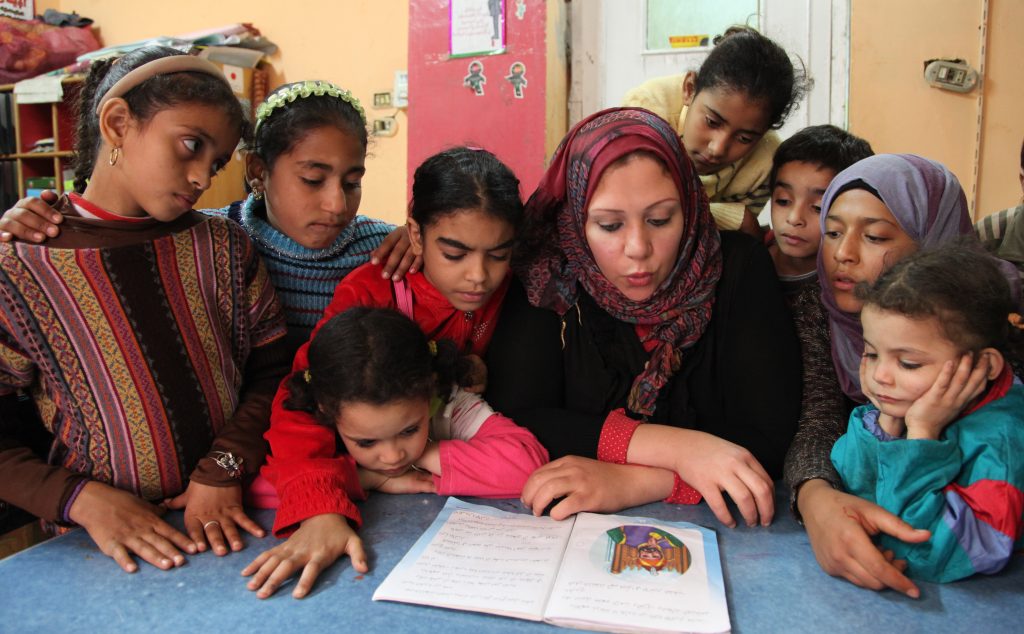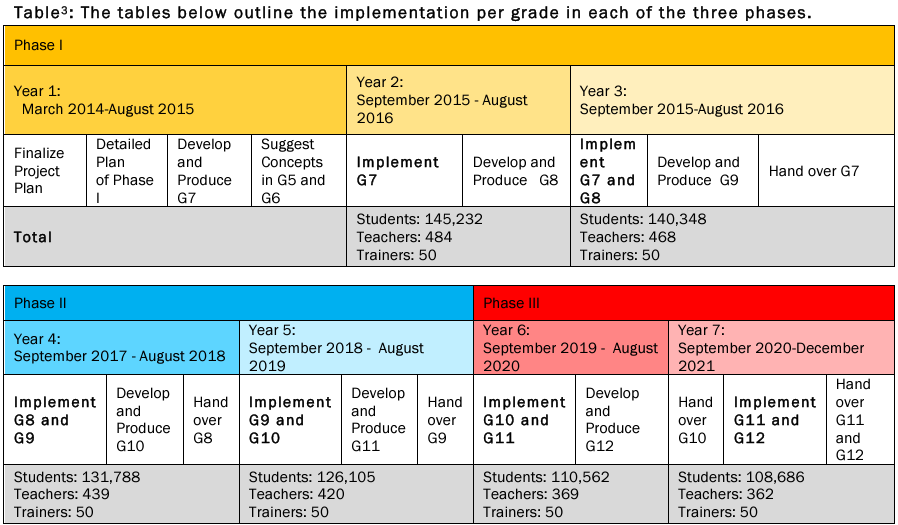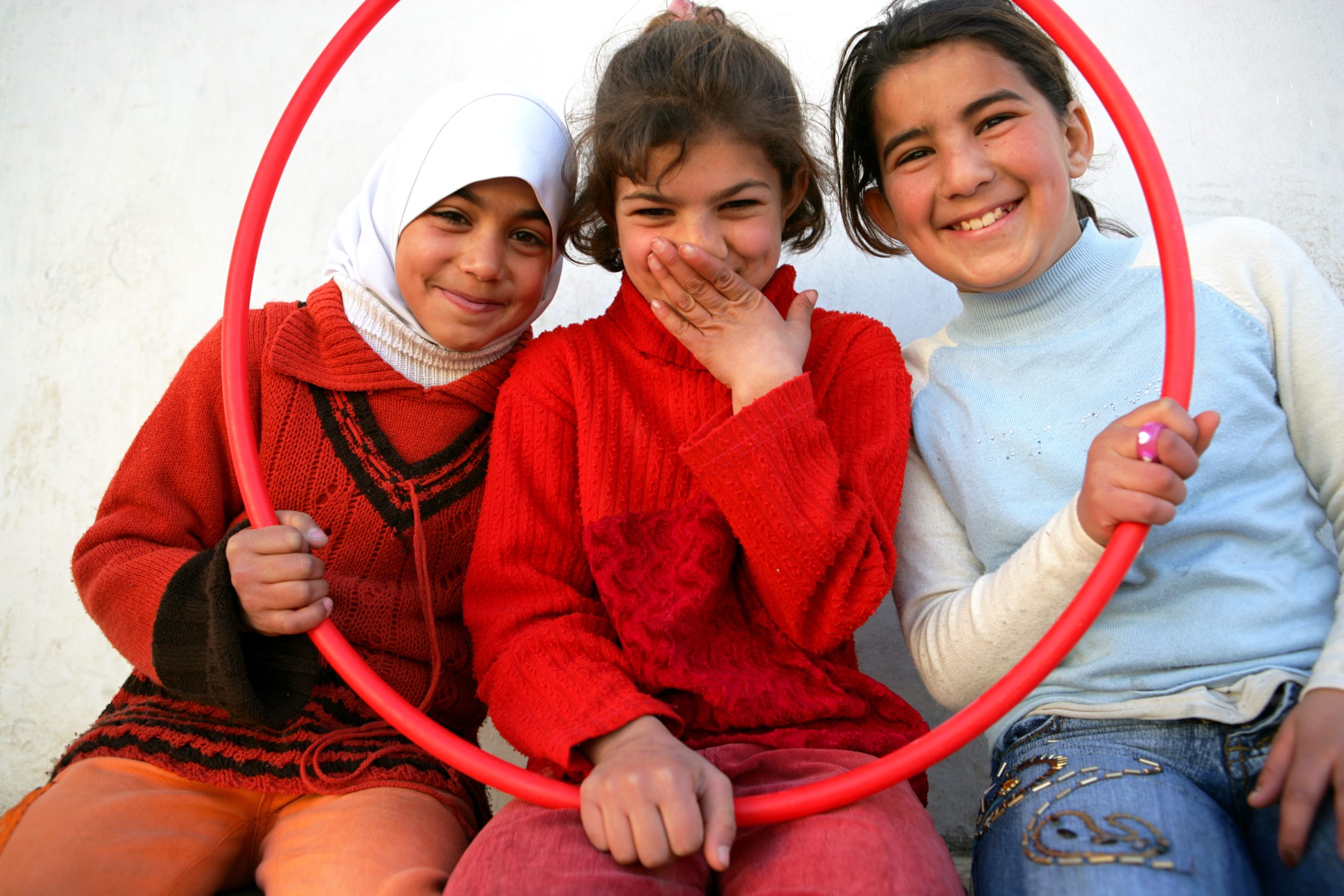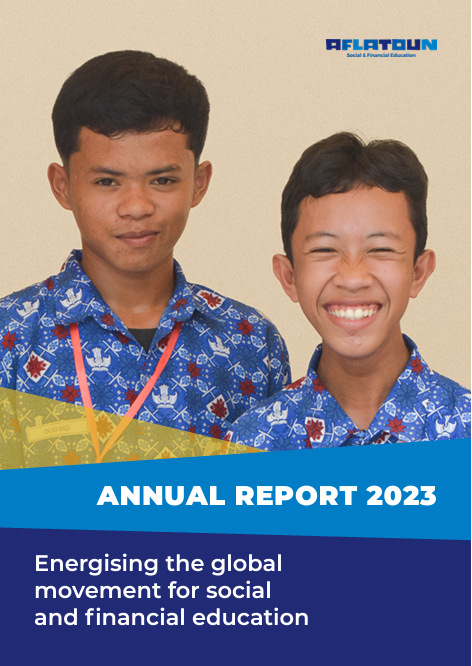National Financial and Social Education Programme in Jordan
Financial inclusion in Jordan is notably limited. A 2012 global study revealed that only 25.5% of Jordanians had a bank account, 14.7% had a debit card, and just 4.5% had taken out a loan from a financial institution in the previous year (World Economic Forum. The Financial Development Report 2012. 2012. World Economic Forum). Additionally, financial literacy is low, with Standard & Poor Global Financial Literacy Survey (2015) showing that only 28% of Jordanians aged 15-34 could correctly answer three out of four basic financial literacy questions.
As financial products and services become more complex, young people in Jordan face increasing financial risks. They are engaging with financial products, such as bank accounts and mobile phone plans at earlier ages, forming financial habits that will influence their futures. However, many parents and families are not equipped to teach sound financial habits to their children, leaving the youth underprepared for the financial challenges ahead.
Scale and Sustainability - Integration into National Education Curriculum
The case for mainstreaming Social and Financial Education
To address the challenges of financial inclusion, the Central Bank of Jordan developed a National Financial Inclusion Strategy, led by the Socio-Financial National Committee. A key element of this strategy is the creation and implementation of a National Social and Financial Education Programme. Integrating financial education into Jordan’s primary and secondary schools has been identified as the most effective way to reach children, youth, and indirectly, the broader population.
Jordan has made significant progress in terms of access to education at both the primary and secondary levels. A school-based approach to financial education also has the potential to positively impact families and communities, as youth are known to effectively spread new knowledge and habits to their peers, siblings, and families.
Additionally, training teachers in financial education will not only enhance their financial literacy but also enable them to share this knowledge with other educators, staff, and their communities.

In order to integrate Social and Financial Education nationally, the process has been supervised and guided by the Financial Education Steering Committee under the Chairmanship of the Central Bank of Jordan.
Implementation is handled by a Project Team hosted by INJAZ, Aflatoun’s local partner, as the executing agency. This is done in coordination with the Ministry of Education (MoE) and the national steering committee. The MoE will be responsible for the sustainability of the programme to ensure that future generations of Jordanians continue to be impacted by these financial education programmes.
Roll-out Phases
The National Social and Financial Education Programme is implemented over a seven-year period in three phases. The project team in collaboration with the MoE develops and integrates the financial education programme in a phased approach (see table).
Starting with grade 7 & 8, each grade-specific curriculum is developed and implemented over a period of two academic years. Following the two-year implementation, each curriculum will be evaluated and handed over to the Ministry of Education. By the end of the seventh year of implementation, grades 7-12 in all Jordanian schools will run financial education programmes.

The Partnership with Aflatoun International
Aflatoun offers technical support through its internationally recognised curriculum on social and financial education, combined with an active learning methodology. The local team adapted Aflatoun’s teaching guides, originally designed for teachers and facilitators, to suit the local Jordanian context.
Aflatoun provided master training to INJAZ facilitators, who then cascaded the training to teachers across Jordan. Additionally, Aflatoun International assisted in the development and customisation of monitoring and evaluation tools. Based on feedback from supervisors and teachers during a pilot phase, a second round of training was conducted and refreshers and additional trainings are regularly offered to INJAZ and teachers, to keep them updated on the revisions of the programmes and ensure high quality education is implemented.

There are different elements that need to be taken into consideration when integrating social and financial education at the national level:
The Expected Outcome
By 2020, all public, private, military and UNRWA schools will be teaching Financial Education from grades 7 through 12 – nearly 3,400 schools. This should result in a positive financial culture in current and future generations of youth and adults. Children and youth will develop sound financial habits (e.g., saving, budgeting, earning) and will be empowered to achieve their full-potential as informed economic actors.
In partnership with:













